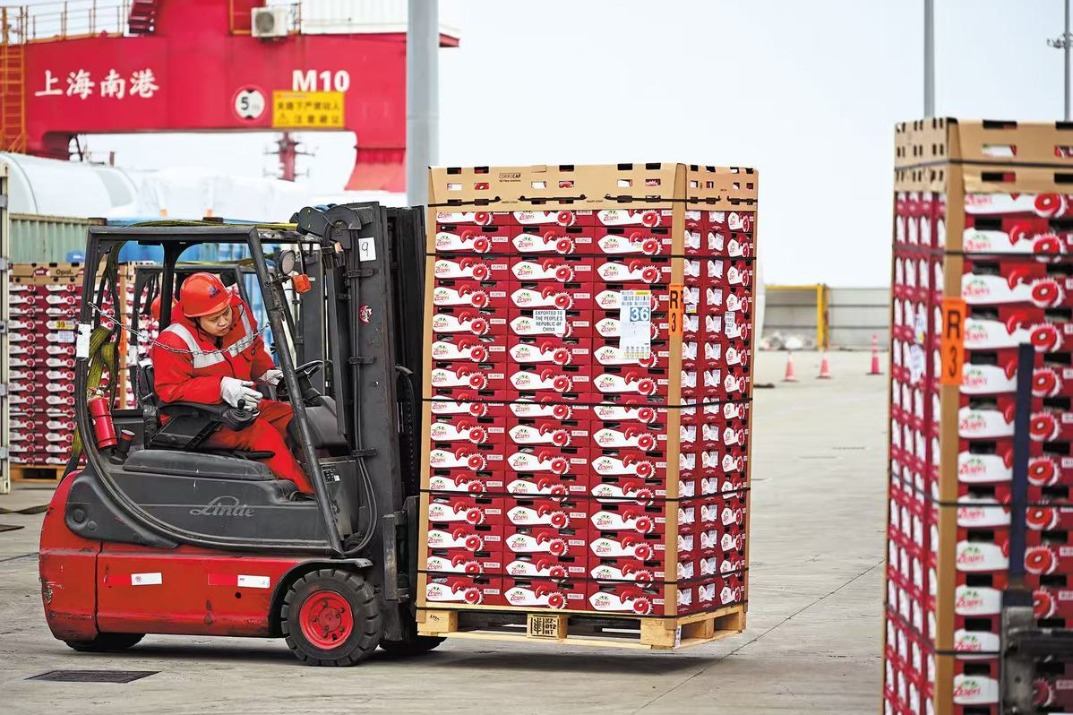E-commerce platforms to adjust supply chains, logistics networks
Localized operations in overseas markets allow retailers to expand global reach


The United States' move to eliminate de minimis treatment for small packages and low-value imports from China will prompt Chinese cross-border e-commerce platforms to adjust supply chains and logistics networks, speed up the establishment of overseas warehouses and diversify layouts in emerging markets, experts said.
Shein and Temu, two Chinese cross-border e-commerce platforms offering a wide selection of merchandise at competitive prices, recently raised prices for US consumers.
The two platforms said recent changes in global trade rules and tariffs have caused their operational expenses to go up, making the price increases necessary.
The de minimis exemption allowed items valued at up to $800 and sent from China via postal service to enter the US duty free and with minimal inspections. The Trump administration decided to end the duty-free de minimis treatment for low-value imports by imposing a tax of 120 percent of the package's value, effective since May 2.
Recently, the US government has cut the de minimis tariff on low-value packages imported from China to 54 percent from 120 percent. A $100 flat fee will also apply to the packages, down from a $200 fee set to come into effect by June.
The two Chinese online discount retailers have taken steps to buffer against the impact of the revocation of the small-package tax exemption.
Shein has opened distribution centers and a supply chain hub in the US, and started to diversify its supply chain, adding more suppliers from Brazil. It has expanded its presence in European countries including Germany, the United Kingdom, France, Italy and Spain, as part of a broader push to explore diversified markets and work with local manufacturing suppliers.
Temu, which is owned by Chinese online discounter PDD Holdings, last year began adding Chinese sellers to its site that have inventory at US warehouses, allowing it to ship packages faster to shoppers in the US.
He Yadong, spokesman for the Ministry of Commerce, said at a recent news conference in Beijing that China firmly opposes the US' decision to eliminate the de minimis exemption, as the move harms the interests of enterprises and consumers in both countries.
He noted that cross-border e-commerce meets the personalized needs of consumers in various countries with unique advantages of high efficiency, fast delivery and low costs, highlighting that the de minimis trade exemption will not stop the rapid development of cross-border e-commerce.
Hong Yong, an associate research fellow at the Chinese Academy of International Trade and Economic Cooperation, said the elimination of de minimis exemption and increased duties on small packages will push Chinese cross-border online marketplaces to expand sales channels and optimize supply chain management to reduce dependence on a single market.
Hong said Chinese e-commerce platforms should invest more in establishing overseas warehousing, accelerate steps to expand their footprint in more diverse and emerging markets, and strengthen cooperation with international logistics enterprises to improve delivery efficiency and lower logistics costs.
As an important practice supporting the development of cross-border e-commerce, overseas warehouses allow domestic retailers to transport commodities in bulk to overseas locations in advance, which is conducive to lowering shipping costs and facilitating the efficient delivery of goods to consumers abroad, market observers said.
The development of overseas warehouses has been high on the government's agenda. China will advance the construction of overseas warehouses and expand cross-border e-commerce exports to accelerate the cultivation of new growth drivers for foreign trade, according to a guideline issued by the Ministry of Commerce and other government departments last year.
Zhang Zhouping, an independent analyst who has been tracking the cross-border e-commerce sector for more than a decade, said that the recent US policy shift will not only result in reduced supply and fewer choices for local consumers, but also have a negative impact on the overall development of the global e-commerce industry.
Zhang said it is of vital significance for Chinese online retailers to strengthen localized operations in overseas markets in order to reduce international transportation costs and expand their global reach to diversified markets such as Southeast Asia, Europe and South America.
"Overseas warehouses serve as vital infrastructure that boost growth in the nation's cross-border e-commerce sector," he said, adding that such facilities enable quicker Customs clearance, faster delivery and lower costs, while safeguarding the stability and security of supply chains.




































